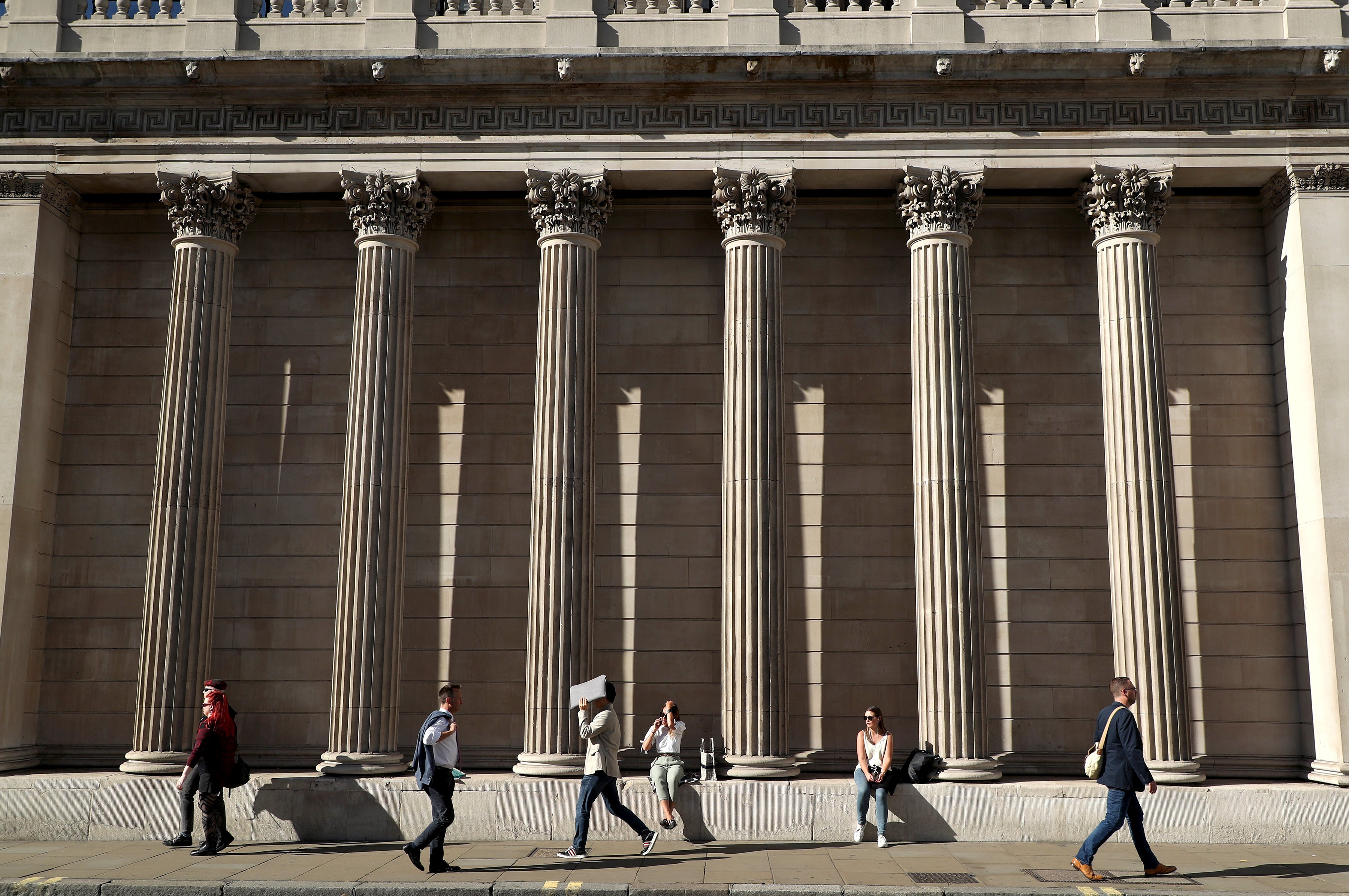Another hefty rate rise may be on the cards in September, economists warn
Experts said this month’s half-point rate increase may not be the last as Bank of England looks to rein in inflation of 13%.

Your support helps us to tell the story
From reproductive rights to climate change to Big Tech, The Independent is on the ground when the story is developing. Whether it's investigating the financials of Elon Musk's pro-Trump PAC or producing our latest documentary, 'The A Word', which shines a light on the American women fighting for reproductive rights, we know how important it is to parse out the facts from the messaging.
At such a critical moment in US history, we need reporters on the ground. Your donation allows us to keep sending journalists to speak to both sides of the story.
The Independent is trusted by Americans across the entire political spectrum. And unlike many other quality news outlets, we choose not to lock Americans out of our reporting and analysis with paywalls. We believe quality journalism should be available to everyone, paid for by those who can afford it.
Your support makes all the difference.The Bank of England may be forced to increase rates by another half point as soon as next month as it puts the need to rein in inflation over risks of deepening the looming recession, economists have warned.
James Smith, developed markets economist at ING, said it is a “strong possibility” that rates may rise again, to 2.25% next month, even though the Bank is forecasting a 15-month recession from the fourth quarter.
It would follow the biggest rate increase in 27 years, from 1.25% to 1.75%, on Thursday and signals the Bank’s worries over rampant inflation, which is now predicted to rise above 13% later this year.
The fact that the Bank reiterated its willingness to act ‘forcefully’ to curb inflation, we think there's a strong possibility of another 50bp hike in September
Bank Governor Andrew Bailey said “all options” are on the table for next month, though he sought to stress that “policy is not on a pre-set path, and what we do this time does not tell you what we’re going to do next time”.
But Mr Smith said: “The fact that the Bank reiterated its willingness to act ‘forcefully’ to curb inflation, we think there’s a strong possibility of another 50bp (basis point) hike in September – particularly if that’s what both the Fed and European Central Bank end up doing too.”
He went on: “The fact that the Bank is stepping up the pace of rate hikes while also forecasting a meaningful recession shows just how worried it is that worker shortages and supply issues could keep inflation elevated even as the economy weakens.
“In other words, it’s the supply side of the economy – much more so than what’s happening with demand – that will heavily determine when and after how many more hikes the BoE will stop tightening. The Bank will want to see signs that skill shortages are easing and that wage pressures are showing signs of abating.”
Brian Coulton, chief economist at Fitch Ratings, said the Bank has “finally joined the large club of central banks making outsized interest rate hikes”.
“This will probably not be the last 50 basis point move – interest rates will likely have to stay above neutral for quite a while even if there is a recession.”
But it is thought the Bank may look to pause after one or more hikes, with ING believing rates may peak at 2.25% to 2.5% later this year.
Experts also said they believe the Bank’s grim outlook for the economy may end up being overly pessimistic, if the UK’s jobs market remains resilient and with the prospect of further government support on the horizon.
Martin Beck, chief economic adviser at the EY Item Club, said: “The Bank’s forecast of a protracted recession is conditioned on interest rates rising to a level which seems unlikely were predictions for shrinking activity and rising joblessness to be in danger of materialising.
“And there is a near-inevitable prospect of further government support to households later this year – above and beyond what has already been announced – to offset some of the impact of higher energy bills.”